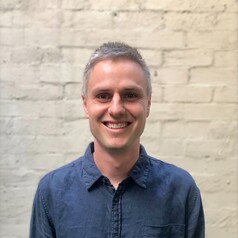
Nicholas Saner
Post-doctoral researcher in sleep science, Victoria University
Nick completed his PhD from Victoria University in 2019 where he studied the mechanisms that underpin the detrimental effects of sleep loss on metabolic health. He also investigated whether exercise could be used as a therapeutic intervention to mitigate the effects of sleep loss.
Following his PhD, Nick worked at the Baker Heart and Diabetes Institute where he was involved in research that investigated the benefits of exercise interventions for oncology populations.
Currently, Nick is a post-doctoral researcher at Victoria University where he is studying the mechanisms that link inadequate sleep to increased risk of chronic diseases such as diabetes, cardiovascular disease, and dementia.
Less ![]()
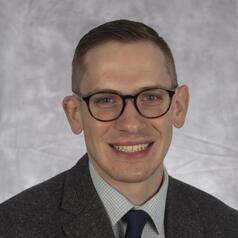
Nicholas Shrum
Doctoral Student in Religious Studies, University of Virginia
Nicholas Shrum is a PhD student in religious studies at the University of Virginia. He specializes in American religious history and Mormon studies. He holds a MAR from Yale Divinity School and a BA in American Studies from Brigham Young University.
Less ![]()

Nicholas Smith1
Head, Paediatric Neurodegenerative Diseases Research Group, University of Adelaide
Dr. Nicholas Smith is the Director, Department of Neurology and Clinical Neurophysiology, The Women’s and Children’s Hospital, Adelaide, Australia and holds a conjoint appointment with the Discipline of Paediatric Medicine, University of Adelaide, where he leads the Paediatric Neurodegenerative Diseases Research Group. He was awarded a Churchill Fellowship to study disorders of neurotransmission at the Kennedy Krieger Institute, USA and completed a PhD within the Department of Medicine University of Cambridge, United Kingdom. He maintains a sub-speciality practice in neurogenetic and neurometabolic disease and paediatric movement disorders, with internationally recognised expertise in the Childhood Dementias, and a focus upon disorders of lysosomal metabolism. Dr. Smith maintains an active pre-clinical and translational research program, targeting the pathobiology of neurodegenerative disease, identification of disease biomarkers and novel therapeutic approaches, including gene transfer and antisense oligonucleotide technologies; he is a Principal investigator on multiple international clinical trials involving novel gene transfer and biopharmaceutical therapies for Childhood Dementia. He maintains strong collaborations with scientific, patient advocacy and clinical colleagues, who collectively advocate for therapeutic and health service advances on behalf of children with Childhood Dementia and their families.
Less ![]()
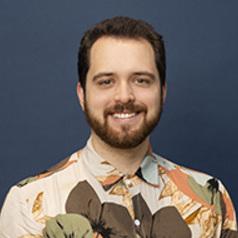
Nicholas Taylor
Postdoctoral research fellow, National Drug Research Institute, Curtin University
Research Fellow at the National Drug Research Institute, researching alcohol consumption and related harms.
Dr Nicholas Taylor has worked within the field of alcohol policy research since 2015. Much of his research has focused on evaluating the impact of policies and interventions in nightlife settings on alcohol-related violence. He has also investigated how pricing policies have influenced alcohol consumption in the Northern Territory. His work involves using epidemiological data to map the impact of interventions on alcohol consumption, violence, and other alcohol-related harms.
Less ![]()

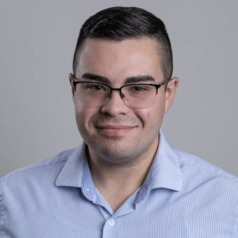
Nicholas Tucker Reyes
PhD Student, University at Buffalo
Tucker Reyes is a PhD student in the Department of Sociology at the University at Buffalo. His research centers on law and culture and how this intersection shapes inequality. He has studied the historical progression of the welfare state and public assistance programs and the legal stigmatization of the “undeserving” versus the “deserving poor.” His current research examines the legal history of lending practices in the early twentieth-century U.S. He is also working on collaborative projects examining how at-risk youth conceptualize punishment and the degree to which sociodemographic factors influence social mobility and indebtedness across the life course.
Less ![]()
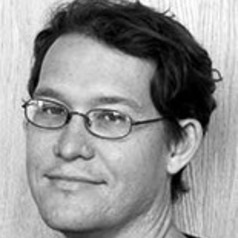
Nicholas Weaver
Nicholas Weaver received his bachelor’s degree in 1995 and his doctorate in 2003, both from UC Berkeley. He joined ICSI in 2003 as a postdoctoral fellow and was hired as a senior researcher the next year. From January 2010 to December 2011, he held a position as a visiting researcher at UC Berkeley and now currently holds a position as a visiting researcher at UC San Diego. He is a member of ICSI’s network security team, a co-developer of the Netalyzr system, and, in 2011, a co-winner of the FCC Open Internet Research Challenge. He is also a visiting lecturer in the CS Department at the University of California at Berkeley. His research interests include computer security and network measurement, with an emphasis on both large scale attacks and large scale measurement.
Less ![]()
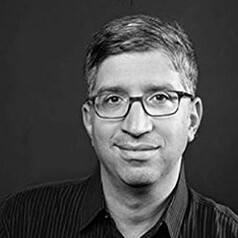
Nicholas Dagen Bloom
Professor of Urban Policy and Planning, Hunter College
Nicholas Dagen Bloom is a Professor of Urban Policy and Planning at Hunter College. His research analyzes long-term planning outcomes in essential urban systems such as subsidized housing and mass transportation. He is the author of Suburban Alchemy (OSU, 2001), Merchant of Illusion (OSU, 2004), Public Housing That Worked (Penn, 2008), The Metropolitan Airport (Penn, 2015), and How States Shaped Postwar America (Chicago, 2019). He is co-editor of four edited collections, including the prize-winning Public Housing Myths (Cornell, 2015) and Affordable Housing in New York (Princeton, 2015).
Professor Bloom has been quoted extensively on housing and other topics in media outlets, including WNYC, The New York Times, CNN, and The Washington Post. As a frequent contributor to Gotham Gazette, he has written extensively on issues related to public housing; his editorials have also appeared in Newsday, The Daily News, and City Limits. As a co-curator of housing exhibitions at Hunter College and the Skyscraper Museum, he has highlighted overlooked dimensions of community life. Bloom frequently joins panel discussions on issues of concern to planners, historians, architects, and the general public. He has taught urban affairs courses to thousands of students in previous positions at NYIT, NYU, and Tulane.
His new book, The Great American Transit Disaster: Austerity, Autocentric Planning, and White Flight (University of Chicago Press) will be published in May of 2023
Less ![]()
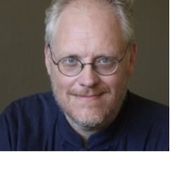
Nicholas J. Cull
Professor of Communication, USC Annenberg School for Communication and Journalism
Less ![]()

Nicholas J. Horton
Beitzel Professor in Technology and Society (Statistics and Data Science), Amherst College
Less ![]()

Nicholas J. Kelley
Assistant Professor in Social Psychology, University of Southampton
I am a social psychologist who uses neuroscientific tools to investigate the nature of the self. Among the topics i study how the self is represented in the brain as well as what guides and drives the self.
Less ![]()
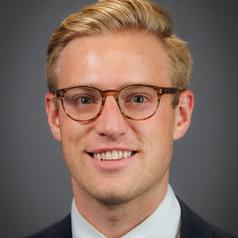
Nicholas R. Micinski
Assistant Professor of Political Science and International Affairs, University of Maine
Dr. Nicholas R. Micinski is Libra Assistant Professor of Political Science and International Affairs at the University of Maine. His research focuses on global governance, particularly how states and international organizations respond to refugees, migration, climate change, and peacebuilding. Micinski has published two books: Delegating Responsibility: International Cooperation on Migration in the European Union (University of Michigan Press, 2022) and UN Global Compacts: Governing Migrants and Refugees (Routledge, 2021). Previously, Micinski was postdoctoral fellow at Université Laval, ISA James N. Rosenau Postdoctoral Fellow, and visiting researcher at the Center for the Study of Europe, Boston University.
Less ![]()
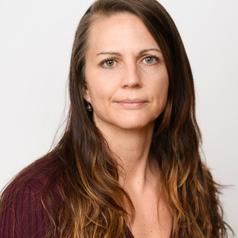
Nichole Barta
Associate Professor of Kinesiology & Sport Management, Gonzaga University
Nichole Barta, Ed.D. is a faculty member in the School of Education at Gonzaga University and the Director for the Center of Teaching and Advising. She collaborates with faculty to integrate the university’s mission and evidence-based practices into their course design and instruction.
Dr. Barta has taught high school and college students and has facilitated professional learning opportunities for K-12 teachers and higher education faculty in her 22 years in the education profession.
She is the co-author of Designing and Teaching Fitness Education Courses and has co- authored book chapters on curriculum development and evaluation, and quality instruction.
Dr. Barta received her Ed.D. in Doctoral Studies in Education and Program Administration Certificate from Seattle Pacific University. She also obtained an M.Ed. in Curriculum and Instruction with a concentration in Teaching and Learning from Seattle Pacific University and B.A.s in Physical Education and Spanish Education with an endorsement in Health education from Whitworth University.
Less ![]()
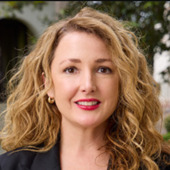
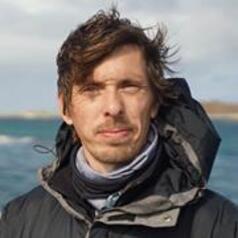
Nick Balfour
Research Technician in the School of Life Sciences, University of Sussex
Nick is a researcher at the University of Sussex. He is an applied and behavioural ecologist working primarily with agroecological systems.
Less ![]()
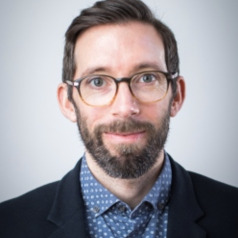
Nick Butler
Associate Professor, Stockholm University
Nick Butler is Associate Professor at Stockholm University, Sweden. He researches in the field of organisation studies, focusing on the sociology of work and critical perspectives on management. He writes on topics including workplace gamification, leadership science, research ethics, stand-up comedy, and the philosophy of jokes. He is an associate editor of Organization and a member of the editorial collective of Ephemera: Theory & Politics in Organization.
Less ![]()
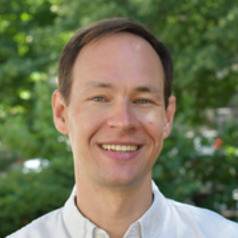
Nick Buttrick
Assistant Professor of Psychology, University of Wisconsin-Madison
Our lab uses a socioecological approach to understand contemporary society, one that examines how structural, demographic, geographic, cultural, and historical factors create individual psychology in real-world contexts. We use a multi-method approach, including laboratory experiments, on-line studies, archival research, and surveys with a stress on promoting open replicable practices. Currently, we are focusing on the psychology of peculiarly American cultural beliefs including the symbolism of gun ownership (such as how people think about guns, what historical and demographic patterns have shaped those thoughts, how they use them to cope with threat in everyday life, how they use them to signal identity, and what happens to communities in the wake of gun violence), the ways in which people think about effort and success (such as how people think about those who succeed, how they think about the failures of themselves and others, how they use a linkage between effort and success to shore up beliefs about hierarchy, meritocracy, and deservingness, how such beliefs are shaped by schemas like the Protestant Work Ethic, how these beliefs differ by sociodemographic positioning such as class, and how these beliefs are similar to and different from non-American cultural traditions surrounding the importance of effort), and the political and motivational consequences of America’s built environments (such as the ways in which walkable neighborhoods or neighborhoods full of parks and recreation allow for different sorts of interpersonal interactions among strangers and how residential mobility and its decline in the United States shapes the ways that people are able to form relationships). As a lab full of pragmatists, we’re ultimately interested in making sure that our research *does* something, using the power of theoretically-driven psychology to develop meaningful interventions into the world.
Less ![]()
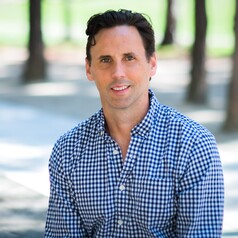
Nick Chartres
Senior Research Fellow, Faculty of Medicine & Health, University of Sydney
Nick Chartres is a Senior Research Fellow at The University of Sydney. He specialises in studying commercial determinants of health, focusing on chemicals, fossil fuels, nutrition and public health.
He is coordinating a program of work in collaboration with the Program on Reproductive Health and the Environment (PRHE), University of California, San Francisco to Analyse and Counter Industry Health Harms to safeguard public health and ensure a more fair and equitable society.
Nick has extensive experience in evidence synthesis, including the use of systematic review methods and works with international organizations and agencies to implement empirically based methods to develop guidelines and risk assessments to ensure improved consistency, greater transparency, and reduced bias when evaluating the scientific evidence and formulating recommendations.
Less ![]()

Nick Dunn
Nick Dunn is Professor of Urban Design at Imagination, an open and exploratory research lab at Lancaster University where he is also Research Director for the Lancaster Institute for the Contemporary Arts. He is Associate Director of the Institute for Social Futures, leading research on the Future of Cities and Urbanism. His work responds to the contemporary city as a series of systems, flows and processes, and is explored through experimentation and discourse addressing the nature of urban space: its perception, demarcation and appropriation. His papers have been published and presented internationally and collaborative creative work exhibited across the UK, China and the Ukraine. His forthcoming book, Dark Matters: A Manifesto for the Nocturnal City will be published by Zero Books in 2016.
Less ![]()
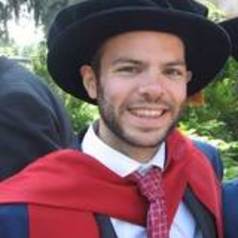
Nick Earl-Jones
Climate Research Fellow with the Climate Futures Programme, University of Tasmania
I'm a Climate Research Fellow at the University of Tasmania with the Climate Futures Programme
Less ![]()

Nick Enfield
Professor and Chair of Linguistics, University of Sydney
I am Professor and Chair of Linguistics at The University of Sydney, Director of the Sydney Social Sciences and Humanities Advanced Research Institute, and the Sydney Initiative for Truth. My research on language, culture and cognition is part of a long-term project aimed at understanding the foundations of human agency.
Less ![]()

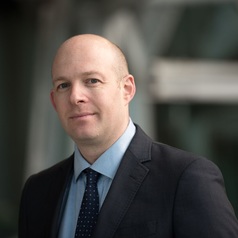
Nick Fischer
Adjunct Research Fellow, Monash University
Nick Fischer is Adjunct Research Fellow in the School of Philosophical, Historical and International Studies at Monash University, and the author of "Spider Web: The Birth of American Anticommunism", published by University of Illinois Press (2016)
Less ![]()
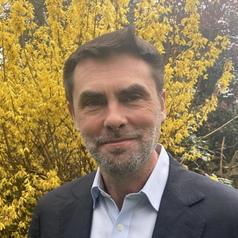
Nick Gallent
Professor of Housing and Planning, The Bartlett School of Planning, Faculty of the Built Environment, UCL
Nick Gallent began his career at the University of Wales, completing doctoral research into the supply of housing in rural areas and the effectiveness of emergent 'planning and affordable housing' mechanisms, in 1995. He then worked at Cardiff and Manchester Universities before taking up a lectureship at UCL in 1999. He is a geographer by training and was elected a Chartered Member of both the Royal Town Planning Institute and the Royal Institution of Chartered Surveyors in 2002 and 2007 respectively. He became a RICS Fellow in 2014, a Fellow of the Academy of Social Sciences (AcSS) in 2015 and a Fellow of the RTPI in 2017. He maintains a range of professional interests and was Chair of the RTPI's Partnership and Accreditation Panel until 2018. He was Head of the Bartlett School of Planning for 8 years between 2011 and 2019.
Nick Gallent is a housing specialist whose research focuses on UK planning policy as it pertains to housing delivery and as it affects rural communities. He has conducted research for a wide range of funding bodies. His research has been disseminated in 17 published books, mainly dealing with housing, planning, rural communities and the countryside, and in a large number of peer-reviewed articles and book contributions. Recent research has focused on:
Planning for housing in the UK
The UK housing crisis
Securing affordable housing through planning
Countryside planning and rural communities
Rural housing markets, second homes and counterurbanisation
Housing standards
Community governance, planning and housing development
Residential development processes and politics
Nick Gallent is a university teacher with 25 years’ experience in higher education. He has taught across a range of topics but currently focuses on planning for housing and countryside planning, having co-authored key course texts on these subjects. He spent 14 years at UCL coordinating professional MSc planning programmes. He was Faculty Tutor for MSc Students across the Faculty of the Built Environment between 2010 and 2014, and in that capacity served as a member of UCL's MSc Scholarships Panel. Nick is a Fellow of the Higher Education Academy and completed professional training as a University teacher at Manchester in 1998. He has contributed, as guest lecturer, to teaching programmes at the Universities of Manchester and Nottingham, at London South Bank University and the LSE, and also at the Department of Urban Studies at Roma 3.
Less ![]()

Nick Garvin
Adjunct Fellow, Department of Economics, Macquarie University
Nick Garvin is an Adjunct Fellow in the Department of Economics at Macquarie University and Research Manager at the e61 institute.
Nick specialises in microeconometric research for Australian economic and financial policy.
His experience includes research at RBA and APRA on topics related to superannuation, mortgage debt, payments, and financial-market transactions, and as an econometrics lecturer at UNSW.
Nick holds a PhD in Economics from Pompeu Fabra University, a Masters in Economics from London School of Economics, and Bachelor Degrees in Economics and Psychology from Macquarie University.
Less ![]()

Nick Hacking
Research associate in environmental governance, Cardiff University
My expertise is in environmental planning and the environmental governance of sustainability transitions in the waste, resources and energy sectors (specifically the 'circular economy'). I am particularly interested in the role of space, place, networked power relations, health, innovation and environmental justice in the governance of normative shifts towards sustainability. My research activity covers the delivery of new infrastructure via the planning system (e.g. energy-from-waste facilities and biomass energy plants). I currently maintain contact with several communities in England and Wales where such infrastructure has been (or is being) located. This includes Barry in South Wales where I am currently working on ESRC-funded research into citizen science.
Less ![]()
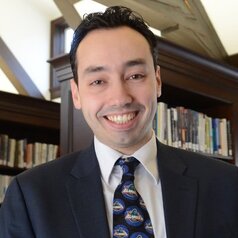
Nick Hirshon
Associate Professor of Communication, William Paterson University
A former New York City journalist, Nicholas Hirshon is an associate professor of communication at William Paterson University in Wayne, New Jersey, about 20 miles west of New York City. He holds a Bachelor’s in journalism from St. John’s University (2006), a Master’s in journalism from Columbia University (2008), and a Ph.D. in mass communication from Ohio University (2016).
Hirshon is the author of the book "We Want Fish Sticks: The Bizarre and Infamous Rebranding of the New York Islanders," released in 2018 via the University of Nebraska Press. He previously wrote two other books, "Images of America: Nassau Veterans Memorial Coliseum" (2010), on the Long Island arena known for hosting the Islanders, and "Images of America: Forest Hills" (2013), about the New York City neighborhood that hosted the U.S. Open tennis tournament for six decades. He has been interviewed about his books by news outlets such as the CBS television affiliate in New York City, News 12 Long Island, the New York Post, Newsday, and the radio station that airs Islanders games.
Hirshon has published in peer-reviewed journals such as American Journalism, Case Studies in Sport Management, International Journal of Sport Communication, and Journalism History. His research has also been recognized with awards and honors at several academic conferences. In 2015, his paper on the groundbreaking association between New York City Mayor John Lindsay and the 1969 New York Mets received the Outstanding Student Paper Award from the American Journalism Historians Association.
Before joining the faculty at William Paterson, Hirshon taught journalism at Ohio University (2013-2016), St. John’s University (2010-2013), and LaGuardia Community College in the City University of New York (2009-2013). He also served on the adjunct faculty at the Columbia Journalism School in 2018 and 2019. Hirshon has received several major awards for his teaching, including an AEJMC Promising Professors Award in 2014 and the Society of Professional Journalists’ New Jersey Journalism Educator of the Year Award in 2019. In 2015, his Ohio University students nominated him for a Graduate Associate Outstanding Teaching Award, and he became the first journalism instructor to win the award in eight years. He is currently the faculty adviser for the William Paterson chapter of the Society of Professional Journalists, and he is the only two-time recipient in the 43-year history of the Society’s prestigious Outstanding Campus Chapter Adviser Award, in 2019 and 2021. He has also served on the boards of the SPJ chapters in New Jersey and New York City.
Hirshon was previously a reporter from 2005 to 2011 at the New York Daily News, where he amassed more than 1,000 bylines covering a mixture of breaking and community news. He also wrote three series that sparked efforts to save historic sites such as the former home of baseball player Jackie Robinson and the longest continuously operated movie theater in the United States. In 2010, Hirshon received an award from a prominent historic preservation group, the Historic Districts Council, for his coverage of forgotten sites in the borough of Queens. He has also freelanced for the New York Times, the Wall Street Journal, and the Hockey News.
Less ![]()
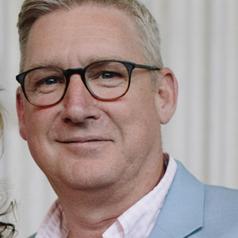
Nick Hockley
Lecturer in Optometric Clinical Skills, Director Deakin Collaborative Eye Care Clinic, Deakin University
Less ![]()
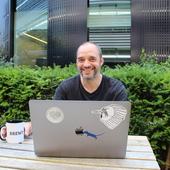
Nick Ilott
Senior Researcher and Lead Bioinformatician, The Oxford Centre for Microbiome Studies, University of Oxford
Less ![]()
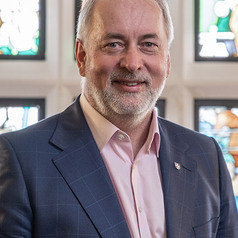
Nick Jennings
Vice-Chancellor and President, Loughborough University
My research focuses on developing artificial intelligence (AI) systems for large-scale, open and dynamic environments.
I focus on how to endow individual autonomous agents with the ability to act and interact in flexible ways and with effectively engineering systems that contain both humans and software agents.
Less ![]()
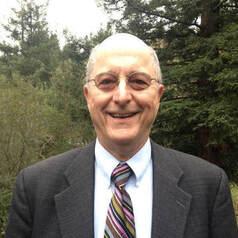
Nick Kanas
Professor Emeritus of Psychiatry, University of California, San Francisco
Professionally, I received a B.A. degree from Stanford and an M.D. degree from the University of California, Los Angeles. I interned at the University of Texas Medical Branch, Galveston, and received psychiatric residency training at the University of California, San Francisco. I now am an Emeritus Professor of Psychiatry at the University of California, San Francisco, and I directed the group therapy training program there and at the San Francisco VA Medical Center. In 2003, I received the J. Elliott Royer Award for excellence in Academic Psychiatry. I am a Fellow of the American Group Psychotherapy Association. For over 20 years I conducted research in group therapy and wrote a book entitled Group Therapy for Schizophrenic Patients. My latest book in this area is Integrative Group Therapy for Psychosis: An Evidence-Based Approach.
For over 50 years I have written about space psychology and psychiatry. I have been the Principal Investigator of several NASA-funded and ESA-sponsored international psychological research projects involving astronauts and cosmonauts in space. In 1999, I received the Aerospace Medical Association Raymond F. Longacre Award for Outstanding Accomplishment in the Psychological and Psychiatric Aspects of Aerospace Medicine. In 2008, I received the International Academy of Astronautics Life Science Award. I am the co-author of the text book Space Psychology and Psychiatry, which won the 2004 International Academy of Astronautics Life Science Book Award and is in its second edition. More recently, I have written a book for the general public entitled Humans in Space: The Psychological Hurdles, which won the 2016 International Academy of Astronautics Life Science Book Award. In 2017, I gave the Psi Chi Keynote Speech on space psychology at the Eastern Psychological Association Convention in Boston; I was invited by the Buzz Aldrin Space Institute to participate in a Mars mission social sciences workshop at the Kennedy Space Center in Florida; and I was invited to give a series of lectures on space psychology to students at Beihang University, Beijing, China. My latest book came out in 2023 and is entitled Behavioral Health and Human Interactions in Space.
I have collected antiquarian celestial maps for over 30 years. I am a Fellow of the Royal Astronomical Society (London) and have given talks on the history of celestial cartography to amateur and professional groups. I have written many articles and two books on astronomical history and celestial mapping: Star Maps (now in its expanded, hard-bound third edition) and Solar System Maps.
I have been an amateur astronomer for over 50 years and have given talks at numerous amateur astronomy meetings and several World Science Fiction Conventions. I have written articles for Analog Science Fiction and Fact magazine, one of which won the annual readers’ poll award for the 2015 Best Fact Article. I also have published three science fiction novels: The New Martians, The Protos Mandate, and The Caloris Network.
Less ![]()

Nick Lehr1
Arts + Culture Editor
Nick Lehr has been The Conversation's Arts + Culture editor since 2014. His work has appeared in The Boston Globe, the Cut, the Christian Science Monitor and Salon.ure Editor
Less ![]()
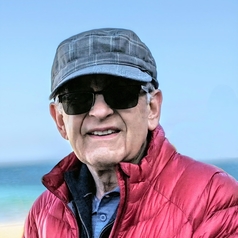
Nick Lomb
Honorary Professor, Centre for Astrophysics, University of Southern Queensland
I have had a variety of research directions over my career. During my PhD project on short period variable stars, I developed the theory of least squares frequency analysis for unequally spaced data. This is now a standard method of numerical analysis, called the Lomb or Lomb-Scargle Periodogram, that is used in astronomy and other fields.
Later at Sydney Observatory, the focus was on astrometry, that is, the positions and motions of stars and solar system objects. This work culminated in the publication of a star catalogue, of which I was co-author.
Then, when the Observatory came under the auspices of the Museum of Applied Arts and Sciences, I became the Museum’s Curator of Astronomy. As such, I planned exhibitions and collected and looked after instruments and other items relating to astronomy. I was also involved with the media and with public education and outreach.
On leaving the Observatory and the Museum, my research emphasis became the history of Australian astronomy, with my latest book, with Toner Stevenson, 'Eclipse Chasers', to be released in March 2023. As well, I continue to prepare the annual Australasian Sky Guide for Powerhouse Publishing and maintain my interest in combatting light pollution.
Less ![]()

Nick Mayhew
Lecturer in Russian, University of Glasgow
Before joining the University of Glasgow, I was a Lecturer in Russian at the University of Oxford (2021-2022) and an Andrew W. Mellon Postdoctoral Research Fellow and Lecturer in Slavic Languages & Literatures at Stanford University (2018-2021). I received my PhD in Slavonic Studies at the University of Cambridge in 2018.
My research explores queer gender and sexuality in Russian, Ukrainian and Church Slavonic culture. As a gay man living in Moscow when Russia introduced its law against the "propaganda of non-traditional sexual relations", I saw first-hand how culture, history and religion can be manipulated to fuel discrimination. My research is premised on telling queer counternarratives about Russian culture and especially religion, to shine light on a rich queer heritage too often obscured from scholarly perception.
I am particularly interested in bringing queerness to light in contexts that are usually deemed conservative and heteronormative, such as within the Orthodox Church. On the one hand, I am interested in thinking through how sexual minorities negotiate their relationships with cultural and religious traditions that have marginalised them, and on the other hand, I look at queerness inherent to the traditions themselves.
My publications focus mainly on the medieval and early modern periods, although I am moving increasingly into the nineteenth and early-twentieth centuries. I am also interested in the telling of cultural and historical narratives about gender and sexuality in the present, and in queerness in contemporary pop culture.
Less ![]()
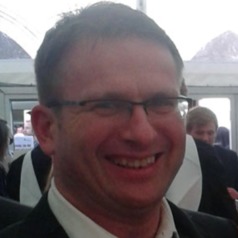
Nick McKerrell
Lecturer in Law, Glasgow Caledonian University
Nick is a Lecturer in Law in the Department of Law, Economics, Accountancy and Risk. Nick teaches mainly in the area of Public Law, Human Rights and Civil Liberties. His research reflects this including many public law issues including: developments around the Scottish Parliament, constitutional legal theory, housing law and the changing ways in which the state interacts with society and individuals. Nick regularly appears on radio discussing civil liberties issues in Scottish society. He has also written on legal research skills for students at all levels.
Less ![]()
- Market Data





















